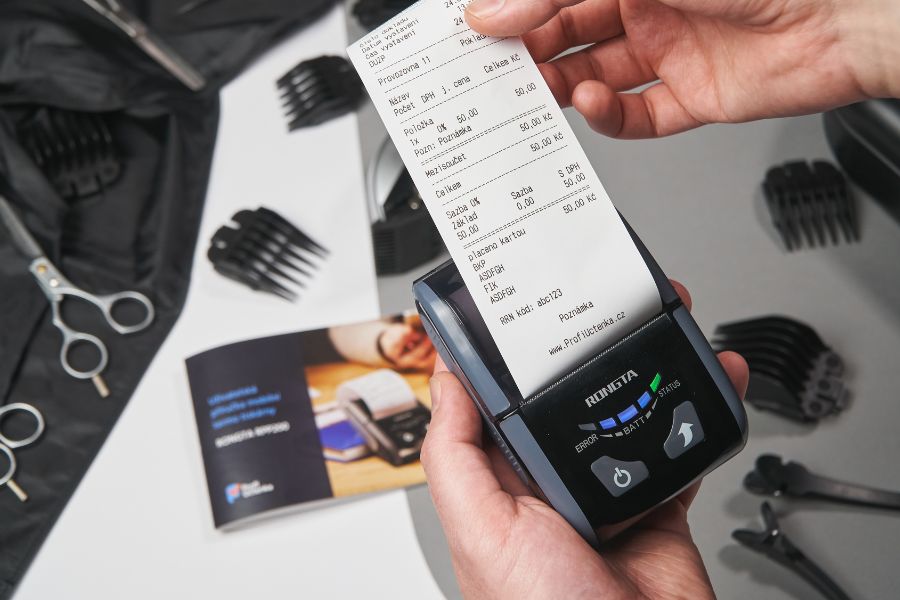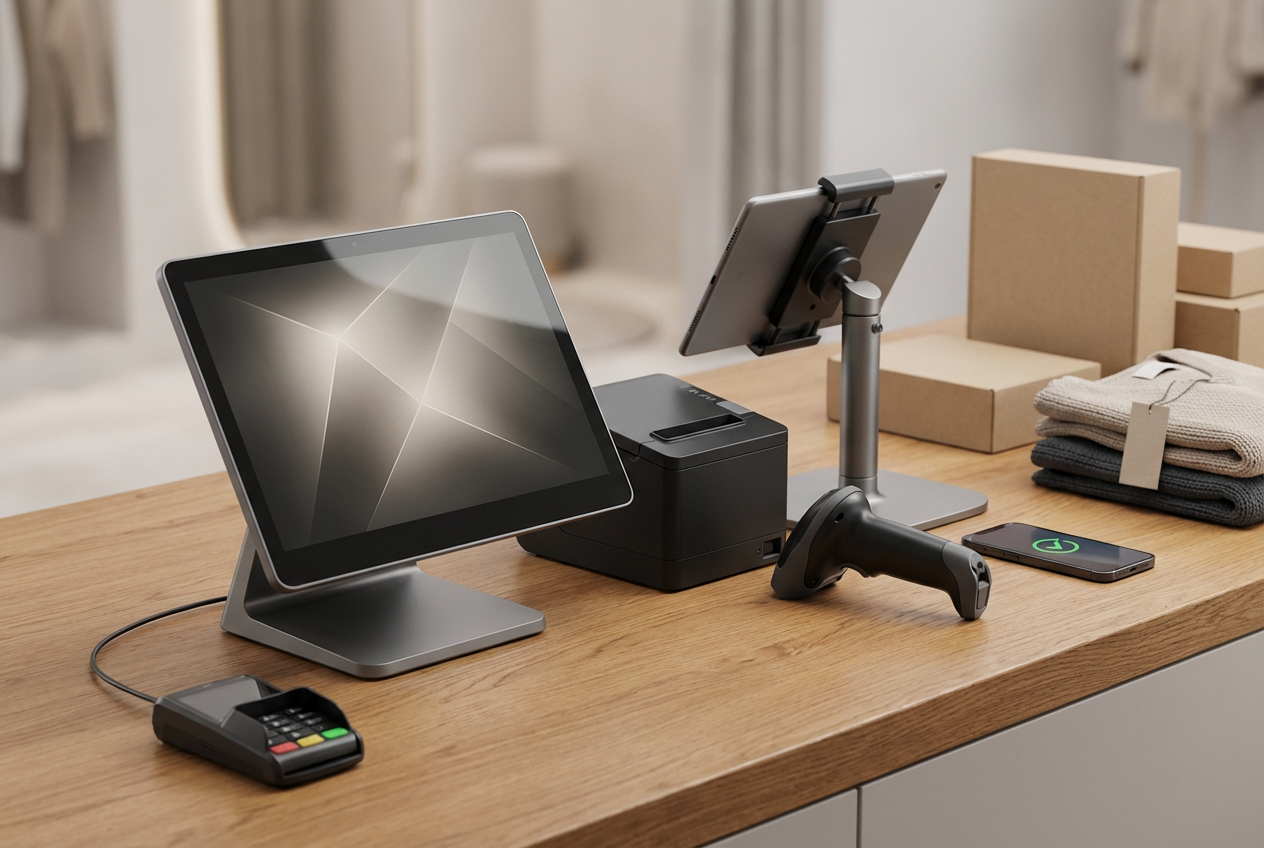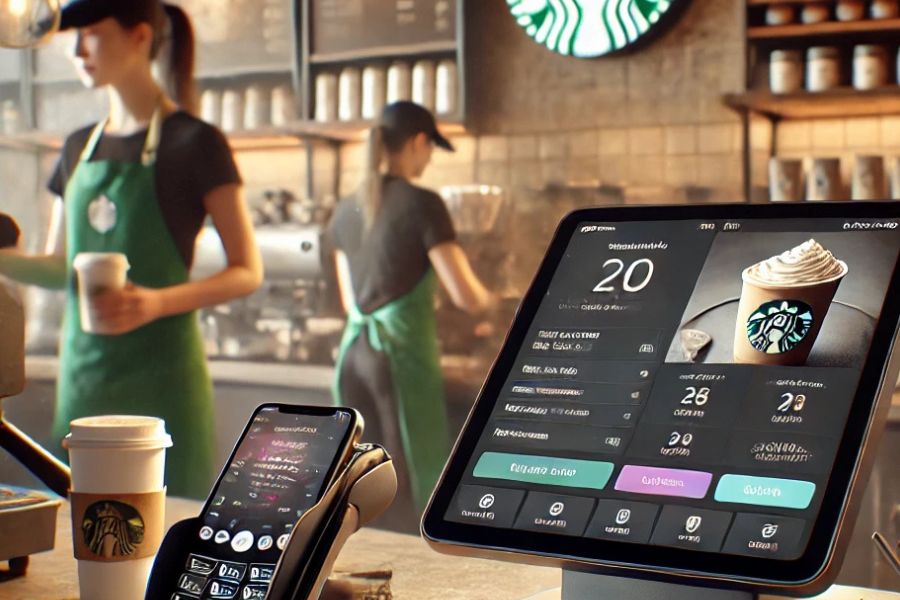Social commerce is changing how consumers shop by allowing them to purchase directly on platforms like Instagram, Facebook, and TikTok. As the market grows, businesses that tap into this trend have the potential to reach vast audiences and convert social interactions into sales. To succeed in this competitive space, understanding your audience’s needs and having the right tools, such as POS and ecommerce software, are key to providing a smooth and engaging shopping experience. This article will explore how these tools help businesses thrive in the world of social commerce.
Highlights:
- As shopping shifts to social media, these tools empower businesses to handle orders, payments, and inventory while engaging customers directly through platforms like Instagram and TikTok.
- Essential functionalities include real-time inventory syncing, multi-platform order management, and integrated payment solutions tailored for social media buyers.
Essential Features to Look for in POS and Ecommerce Software
Choosing suitable POS and ecommerce software plays a key role in improving workflows, elevating the shopping experience, and increasing revenue.
The following features are explored in detail, outlining their advantages and real-world use cases.
- Real-time inventory tracking keeps stock levels accurate across all sales channels. This helps prevent overstocking or running out of items, saving on storage costs and avoiding lost sales due to unavailability.
- Automating processes like inventory updates and purchase orders eliminates manual work and minimizes errors. This synchronization allows businesses to focus on operations while tools handle repetitive tasks such as managing stock or sending marketing emails.
- Integrated reporting and analytics consolidate data from various channels, providing insights into customer behavior, sales patterns, and product performance. Tools like CRM and ERP systems further enrich this data, aiding in smarter decision-making.
- Cross-channel rewards and promotions ensure loyalty programs, coupons, and gift cards are honored both online and offline. A well-connected system enhances the customer experience, allowing consistent reward redemption regardless of the shopping method.
- Pick-up options like “Buy Online, Pick Up In-Store” (BOPIS) and curbside collection cater to shoppers looking for flexibility. Showing stock availability at specific locations or offering maps for nearby stores helps customers make quicker decisions.
- An interconnected system enables a unified shopping journey where customers move between online and offline channels effortlessly. This approach improves satisfaction by giving customers more control over how and where they complete their purchases.
- Custom promotions allow retailers to tailor discounts and campaigns based on purchase history or seasonal trends. This level of personalization drives engagement and increases the chances of repeat business.
- Centralized customer data collection through CRM tools helps businesses tailor interactions to individual preferences. Tracking purchase history allows companies to design marketing strategies that align with customer needs.
Combining these features in POS and ecommerce software creates a retail experience that aligns with modern shopper expectations. Retailers equipped with such tools can focus on meeting customer demands and adapting to changes in the market.
Why POS Ecommerce Software is a ‘Weapon’ in The Social Commerce Era
Unified Channel Management
POS and ecommerce software bridge the operational divide between physical stores and online platforms. A unified system synchronizes inventory, promotions, and pricing, eliminating inconsistencies like showing a product as “in stock” online while unavailable in-store.
For example, a retailer with both a website and brick-and-mortar outlets can use this system to allow customers to check product availability at specific locations in real-time. This coordination streamlines processes like order fulfillment.
Imagine a customer placing an online order for in-store pickup – they experience a faster, hassle-free transaction because the system updates inventory instantly, confirming the item is ready for collection. Retailers save time by avoiding manual updates and building customer trust through accurate information.
Driving Sales Growth
A well-integrated POS ecommerce platform serves as a growth catalyst by optimizing sales opportunities and customer engagement. Centralized data allows businesses to identify top-performing products, anticipate trends, and align inventory with demand patterns. Automated tools for cross-selling and upselling during checkout leverage this data to recommend complementary products, increasing average transaction values.
Moreover, real-time inventory visibility prevents lost sales due to stockouts and reduces overstocking, preserving financial resources. Paired with personalized marketing campaigns and loyalty rewards, these systems drive customer retention and acquisition, ultimately contributing to a scalable and sustainable sales strategy..
Better Shopping Experience
Consumer expectations have shifted dramatically, with convenience and personalization now at the forefront. POS ecommerce software enables retailers to meet these demands by facilitating flexible fulfillment options such as “Buy Online, Pick Up In-Store” (BOPIS) or curbside pickup.
►►► Optimal solution set for businesses: Multi store POS, Next-gen POS, Inventory Management Software (MSI), Self Service, Automation, Backorders
Customers can view real-time product availability, reducing frustration and building confidence in their purchasing decisions. The integration of loyalty programs, gift cards, and promotions creates a consistent experience across all touchpoints, eliminating confusion while enhancing engagement.
These features cater to modern consumers’ preferences for effortless and tailored interactions, fostering stronger customer satisfaction and loyalty.
Data Insights for Social Commerce
The integration of POS and ecommerce software offers robust analytics for social commerce strategies. Retailers can track how social media campaigns drive traffic and purchases, identifying which products perform well on platforms like Instagram or TikTok.
For example, beauty brands might notice through data analysis that a specific lip color promoted by influencers is trending. Using these insights, they can quickly replenish inventory, launch targeted ads, or even introduce complementary products, such as matching blush.
This level of responsiveness not only capitalizes on social trends but also keeps the brand relevant. The data can also inform influencer partnerships by showing which creators generate the highest conversion rates, refining future campaigns for maximum impact.
Adaptability to Business Growth
As businesses expand, their operational complexity often increases, and the need for scalable systems becomes evident. POS ecommerce software can handle growing inventories, additional store locations, and increased transaction volumes without a hitch.
Small retailers expanding into new markets can smoothly integrate their new stores into the existing system, keeping operations unified and consistent. According to Statista, the global retail ecommerce sales reached $5.7 trillion in 2023, showcasing the increasing shift toward online shopping.

Scalable solutions enable businesses to stay competitive by incorporating multi-warehouse management, automated restocking, and tailored analytics. For chain store retailers, these features allow centralized management of sales, returns, and promotions. This approach eliminates operational bottlenecks and ensures consistent service quality across all locations, making it an ideal strategy for businesses managing multiple outlets.
Strengthening Customer Relationships
Building strong customer connections in the age of social commerce involves understanding preferences and delivering value consistently across digital platforms. POS and ecommerce software that sync with social media channels can track purchase patterns and behaviors, enabling businesses to offer personalized experiences in real-time.
Research from McKinsey indicates that businesses adopting personalization strategies see revenue growth of 10-15%, highlighting how personalization can boost customer loyalty. Loyalty programs benefit as well. A brand on TikTok or Instagram can track interactions and purchases, rewarding repeat customers with exclusive offers, early access to limited drops, or special promotions, creating a more personal connection with shoppers.
Integrating customer data from multiple social platforms allows businesses to create a unified experience that resonates with shoppers, regardless of whether they’re browsing Instagram, TikTok, or Pinterest. This approach strengthens engagement, cultivates trust, and turns casual interactions into long-term loyalty. Social commerce makes it easier for businesses to build deeper customer relationships while delivering a more interactive, personalized shopping experience.
Cost-Effective Operations
Integrating POS and ecommerce software with social media platforms helps businesses cut costs by reducing the need for separate online stores and expensive advertising campaigns. Social media tools like Instagram Shopping and Facebook Marketplace allow businesses to sell directly to users, streamlining marketing and logistics.
Automation further drives cost-effectiveness by handling tasks like inventory management and customer service, reducing labor costs and errors. Automated tools ensure products stay in stock and fulfill orders efficiently.
Social commerce also provides valuable customer data from platforms like Instagram, TikTok, and Pinterest, which businesses can use for targeted marketing, sales tracking, and product improvements, reducing customer acquisition costs.
In 2023, 73% of global consumers aged 18 to 35 made purchases through social media, highlighting its potential as a low-cost channel for driving sales. Businesses adopting these platforms can lower expenses, improve customer interactions, and increase revenue. Social commerce facilitates direct transactions and builds stronger connections with customers, helping companies adapt in a competitive landscape.
ConnectPOS: Empowering Businesses in the Social Commerce Era
Social platforms like Instagram and TikTok are transforming shopping habits, merging customer interaction with purchasing opportunities. ConnectPOS helps retailers adapt by uniting digital and physical store operations.
- Real-Time Data Accuracy: ConnectPOS synchronizes inventory, sales, and customer information, keeping everything up to date. This eliminates risks like stockouts or overselling, while ensuring smooth operations across all sales channels, including social platforms.
- Integration with Leading Platforms: The system links directly with ecommerce platforms like Shopify, Magento, and BigCommerce, simplifying the management of social media orders. This consolidated approach enables efficient data handling and operational clarity.
- Customer-Focused Features: By analyzing past buying patterns and engagement, ConnectPOS helps retailers craft tailored promotions and campaigns. These insights foster loyalty and encourage repeat business by addressing individual preferences.
- Data-Driven Decision Making: With its reporting tools, businesses gain a clear view of sales performance, campaign results, and customer behavior. These insights allow for adjustments to strategies, improving overall outcomes.
- Supporting Business Adaptability: ConnectPOS equips retailers to meet the challenges of social commerce. Its tools and integrations provide the agility needed to stay aligned with customer expectations and evolving shopping trends.
FAQs: POS and Ecommerce Software
- What is POS ecommerce software, and how does it relate to social commerce?
POS (Point of Sale) ecommerce software serves as the backbone for managing transactions across various sales channels. In the realm of social commerce, it connects purchases made through platforms like Instagram and TikTok to the broader retail infrastructure, ensuring data is consistently updated across online stores, physical locations, and social platforms.
- Why has this software become central to businesses engaged in social commerce?
Social commerce demands swift adaptability to meet customer expectations. This software bridges the gap between digital platforms and in-store operations, making it possible for businesses to manage everything from inventory to customer engagement without manual intervention.
- How do POS and ecommerce software interact with social media sales channels?
Most systems integrate directly with popular ecommerce platforms like Shopify, BigCommerce, or Magento. These platforms are already optimized for social media sales, allowing orders from platforms like Instagram Shops or TikTok Storefronts to feed directly into the POS system.
Conclusion
As social commerce continues to reshape the retail sector, businesses must adapt their strategies to stay ahead. Integrating POS and ecommerce software enables companies to manage transactions effectively, improve customer interactions, and increase sales across social platforms. These tools help businesses deliver a smooth shopping experience that meets the demands of today’s consumers.
For brands looking to capitalize on the growing social commerce market, investing in the right technology is a smart move. Take action today and connect with ConnectPOS to transform your retail operations and drive sales in the social commerce era. Contact us now!
►►► Optimal solution set for businesses: Shopify POS, Magento POS, BigCommerce POS, WooCommerce POS, NetSuite POS, E-Commerce POS



